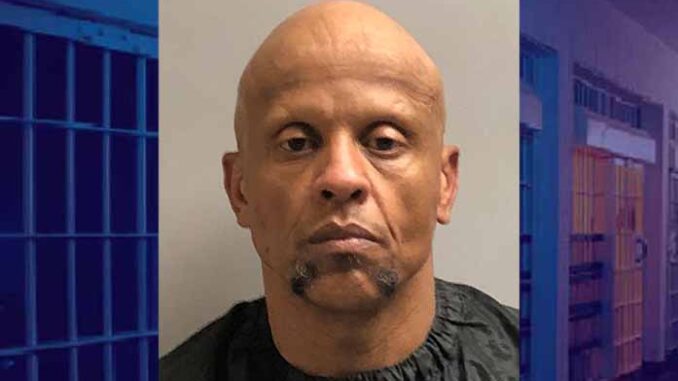
A Casa Grande man faces up to 35 years in prison when sentenced next month on four felony drug charges, but he never stood trial and there was no plea deal.
William LaRoy Davis opted for a rarely used disposition which required Cochise County’s presiding judge to find Davis guilty or not guilty after reviewing evidence submitted by the prosecutor and Davis’ defense counsel. All of which was done in the judge’s chambers without a trial and without direct witness testimony.
Judge Timothy Dickerson announced the four guilty verdicts two days later. The judge also ruled four aggravating factors were proven, including that Davis committed the drug offenses in 2021 “while he was on parole, work furlough, community supervision, or any other release following a conviction of a felony offense.”
Davis, 51, will appear before Dickerson for sentencing Aug. 12. His criminal history along with the aggravating factors will be among the factors the judge can consider when imposing sentencing.
In the meantime, Davis is being held without bond in the Cochise County jail.
Getting Davis’ case to a verdict stage has presented challenges for the judge, prosecutor, and Davis’ court appointed attorney since February 2021 when a county grand jury indicted Davis for offenses alleged to have occurred the month before.
The case was initially on hold for several months while Dickerson determined whether Davis was mentally competent to assist with his own defense. There were also legal disputes on whether jurors would hear about Davis’ multiple prior conviction for drug offenses.
In addition, there was a question as to whether Ashlea Allred, a deputy legal advocate for Cochise County, would remain as defense counsel after Davis requested the court appoint a specific private attorney to handle the case.
Dickerson ruled last fall that Davis was competent to move the case forward that jurors could hear about the prior convictions if Davis testified, and that the attorney
Davis wanted assigned could communicate with Allred but would not be named attorney of record.
Earlier this year Dickerson announced a jury trial would start July 6. Then the day before, Davis asked to have his case decided under Rule 17.7 of Arizona’s Rules of Criminal Procedure, which is commonly referred to as an “as submitted” verdict.
The process differs from a bench trial in which the judge would normally serve as the jury while listening to sworn testimony in a publicly accessible courtroom.
Prosecutor Terisha Driggs of the Cochise County Attorney’s Office told Arizona Daily Independent she was fully prepared to go forward with the jury trial. But she had no objections to utilizing the Rule 17.7 process, as all the evidence and witness testimony she intended to present at trial was conveyed to Dickerson through the stipulated record he reviewed.
The decision by Davis to have his case adjudicated under Rule 17.7 preserves his right to appeal as if he had gone to trial, according to Allred.


